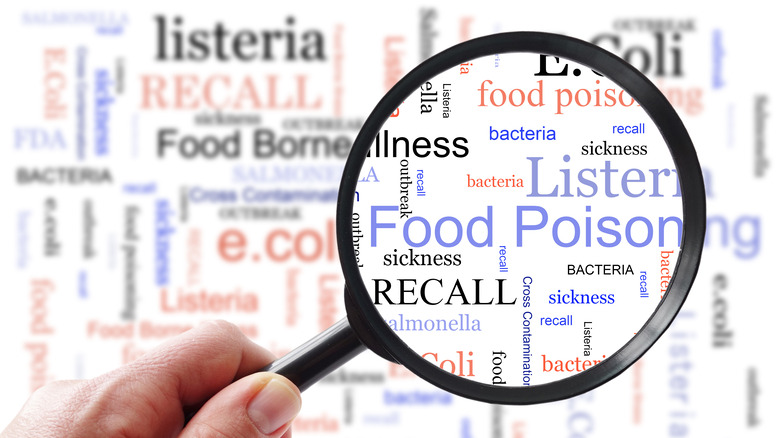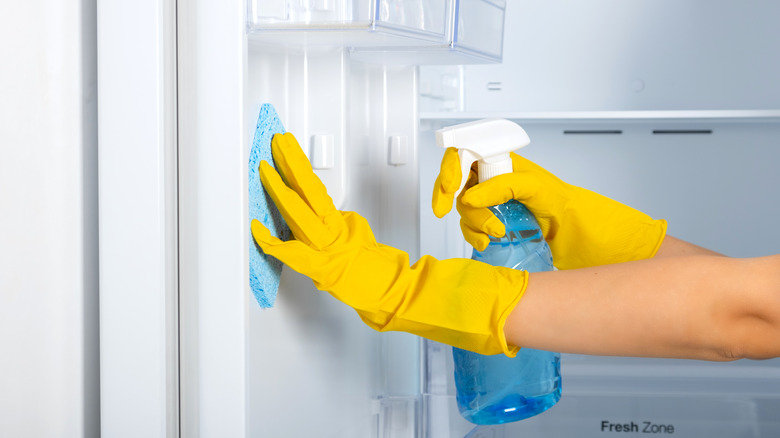You Should Always Clean Your Fridge After A Food Recall. Here's Why
Over the past few months, you may have felt like there have been more food recalls than usual, with products like meat, onions, and spinach being removed from store shelves out of safety concerns for everything from salmonella to E. coli. In reality, according to Food Safety News, recalls almost always occur on a daily basis, which is why it's important to know what to do if an item you've purchased has been flagged as dangerous.
Fortunately, once grocery stores, manufacturers, and government organizations have created awareness about a recall through press releases and public notices, most people know to remove the culprit from their refrigerator or pantry. However, simply discarding the recalled product may not be enough to keep you and your family safe from illness. That's thanks to a little something called cross-contamination, says Food Safety News, noting that harmful germs from the item can transfer to other items in your kitchen through physical contact or opened packaging. This is why the CDC recommends taking thorough steps to clean your entire fridge, cupboards, and counters to prevent food-borne illness following a recall.
How to properly clean your fridge after a food recall
The CDC outlines a set of specific instructions for cleaning your refrigerator after a food recall, which includes throwing out the recalled item along with any products that touched it or were kept nearby. Next, you should remove everything from your refrigerator, including any pull-out shelves or drawers, so you can thoroughly wash all of its surfaces with hot water and soap. You'll also want to sanitize any food or drink containers. Finally, dry everything with a clean towel before reorganizing.
While food recalls can be scary (and dealing with them a pain), the reassuring news is that technology used to identify food disease outbreaks and alert us of the news has continually improved in recent decades. To avoid having to wipe down your kitchen even more, though, you can keep yourself informed of any recall notices through the FDA's recalls and outbreaks website or the CDC's updated list of foodborne outbreak investigations.

